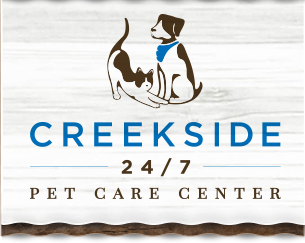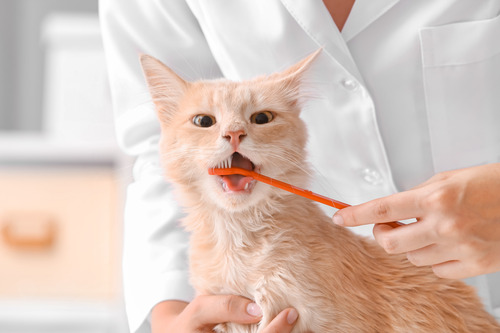Ensuring your cat’s dental health is just as important as maintaining their overall well-being. One significant aspect of this is managing plaque and tartar buildup on their teeth. Neglecting your cat’s dental care can lead to severe health issues. This article will explain why it’s essential to address cat plaque and why regular veterinary visits are crucial for maintaining your cat’s dental health.
The Importance of Dental Health in Cats
Cats are masters at hiding discomfort and pain, which includes dental issues. Plaque is a sticky film of bacteria that forms on the teeth. If not removed, it hardens into tartar, which can lead to more serious dental issues like gingivitis, periodontal disease, and even tooth loss. Regular veterinary check-ups are essential to prevent these conditions and ensure your cat’s long-term health.
Understanding Cat Plaque
Plaque is an invisible film that forms on your cat’s teeth after eating. It’s composed of bacteria and food particles, and if not removed, it hardens into tartar. Tartar, also known as calculus, is a hard, yellowish deposit that can only be removed by a professional veterinarian. Plaque and tartar not only affect your cat’s teeth but can also lead to infections and other health issues if left untreated.
Signs of Dental Problems in Cats
Recognizing the signs of dental issues in your cat is the first step in addressing plaque and tartar buildup. Common signs include bad breath, drooling, difficulty eating, and pawing at the mouth. If you notice any of these symptoms, it’s important to schedule a veterinary appointment immediately. Dental problems can cause significant pain and discomfort, and early intervention can prevent more serious health issues.
Bad Breath and Drooling
While some degree of odor is normal in cats, particularly after meals, persistent bad breath can indicate dental problems. Drooling, especially if it’s excessive, can also be a sign of plaque and tartar buildup. These symptoms should not be ignored, as they can signify more serious dental issues that require professional treatment.
Difficulty Eating and Pawing at the Mouth
If your cat is reluctant to eat, drops food frequently, or shows a preference for soft food, they may be experiencing dental pain. Pawing at the mouth is another clear sign that something is wrong. These behaviors suggest that your cat is in discomfort and needs to see a veterinarian as soon as possible.
The Dangers of Ignoring Cat Plaque
Ignoring plaque and tartar can have severe consequences for your cat’s health. Tartar buildup can lead to gingivitis, an inflammation of the gums, which can progress to periodontal disease. This disease affects the tissues surrounding the teeth and can result in tooth loss, abscesses, and even systemic infections that can affect the kidneys, liver, and heart.
Gingivitis and Periodontal Disease
Gingivitis is the early stage of gum disease, characterized by red, swollen gums that may bleed. If left untreated, it can advance to periodontal disease, which is more severe and involves the structures supporting the teeth. Periodontal disease can cause significant pain and can lead to tooth loss and other serious health issues.
Systemic Infections
Bacteria from infected gums and teeth can enter the bloodstream and spread to other parts of the body, causing systemic infections. These infections can affect vital organs such as the heart, liver, and kidneys, leading to potentially life-threatening conditions. This is why regular dental check-ups and professional cleanings are essential for your cat’s health.
The Role of Regular Veterinary Visits
Regular veterinary visits are crucial for maintaining your cat’s dental health. Your vet can perform thorough dental cleanings and check for signs of plaque, tartar, and other dental issues. They can also provide guidance on how to care for your cat’s teeth at home, including the use of dental treats and specialized diets that help reduce plaque buildup.
Professional Dental Cleanings
During a professional dental cleaning, your veterinarian will remove plaque and tartar from your cat’s teeth. This process often requires anesthesia to ensure your cat is comfortable and still during the procedure. Regular cleanings can prevent the buildup of tartar and help maintain your cat’s oral health.
At-Home Dental Care Tips
In addition to professional cleanings, your vet can recommend ways to care for your cat’s teeth at home. This may include brushing your cat’s teeth with a cat-friendly toothpaste, providing dental treats, and using water additives that help reduce plaque. Regular at-home care can complement professional cleanings and help keep your cat’s teeth healthy.
How Creekside Pet Care Center Can Help
At Creekside Pet Care Center, we understand the importance of your cat’s dental health. Our team of experienced veterinarians provides comprehensive dental care services, including cleanings, examinations, and treatments for dental issues. We are dedicated to helping your cat maintain a healthy mouth and preventing the serious consequences of plaque and tartar buildup.
Comprehensive Dental Services
Our dental services include thorough examinations, cleanings, and treatments for any dental issues your cat may have. We use advanced equipment and techniques to ensure your cat receives the best possible care. Our goal is to provide effective and compassionate care to keep your cat’s teeth and gums healthy.
Experienced and Compassionate Care
Our team is experienced in handling dental issues in cats and is committed to providing compassionate care. We understand that dental visits can be stressful for both you and your cat, and we strive to make the experience as comfortable as possible. We are here to answer any questions you may have and provide the support you need to care for your cat’s dental health.
Taking the Next Step for Your Cat’s Dental Health
Addressing plaque and tartar on your cat’s teeth is crucial for their overall health and well-being. Regular veterinary visits, professional cleanings, and at-home dental care are essential steps in maintaining your cat’s dental health. If you have noticed any signs of dental issues in your cat, don’t wait. Schedule an appointment with Creekside Pet Care Center today by calling (817) 421-5850 or making an appointment online. Our team is here to help you keep your cat healthy and happy.






